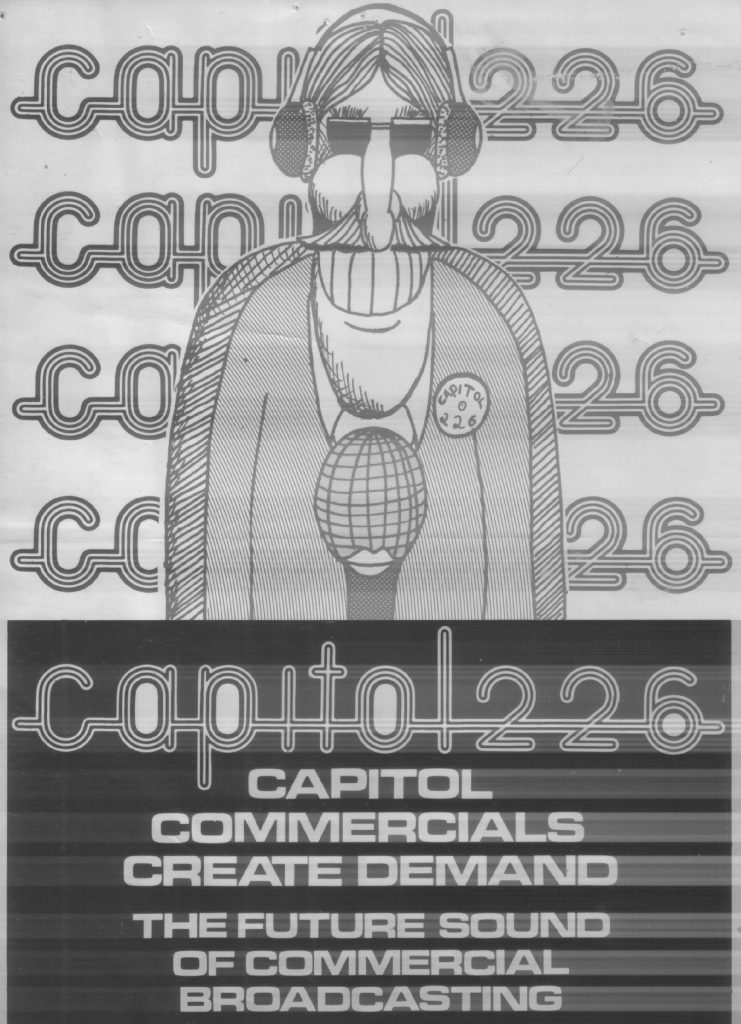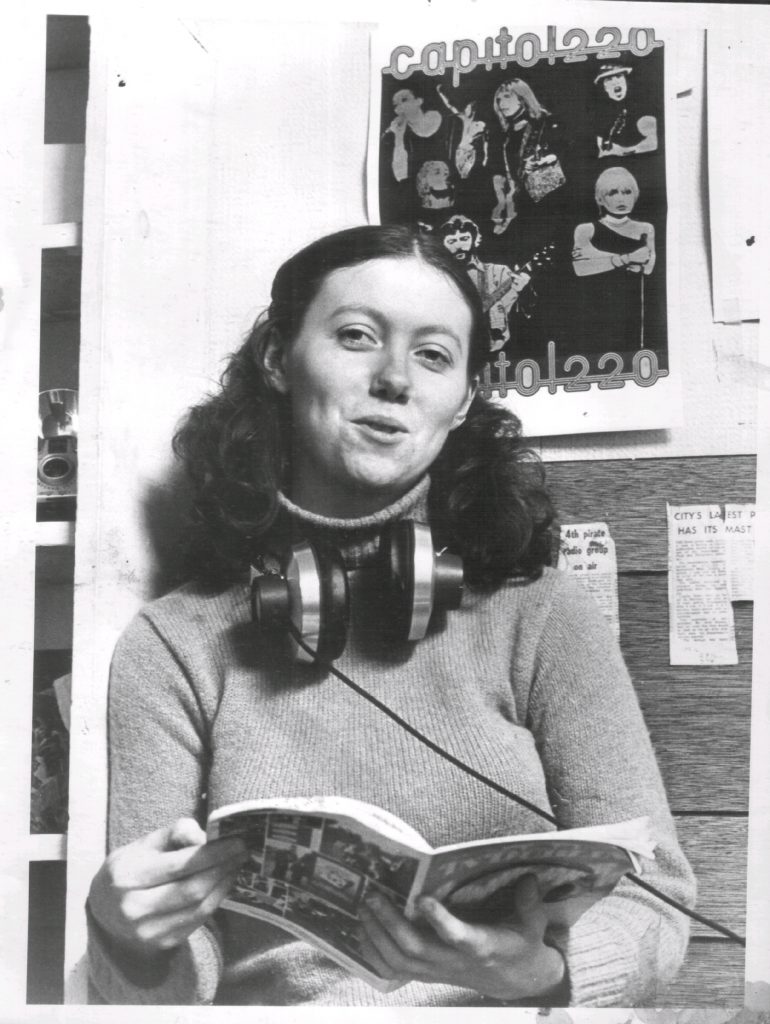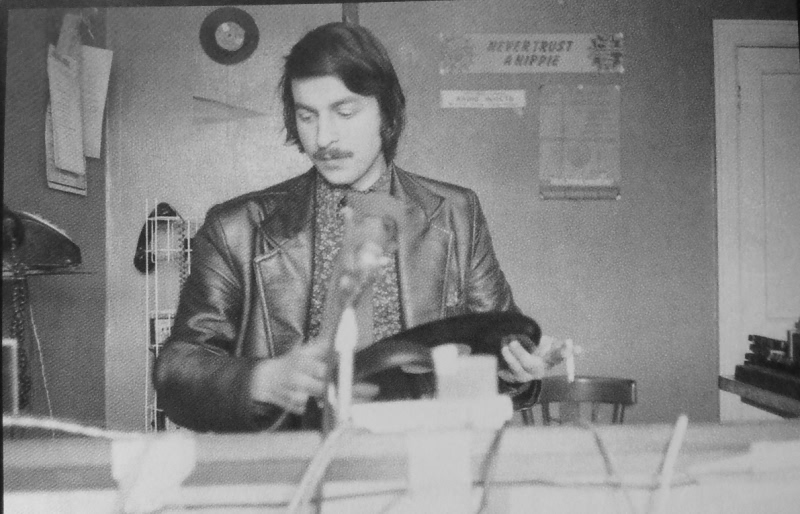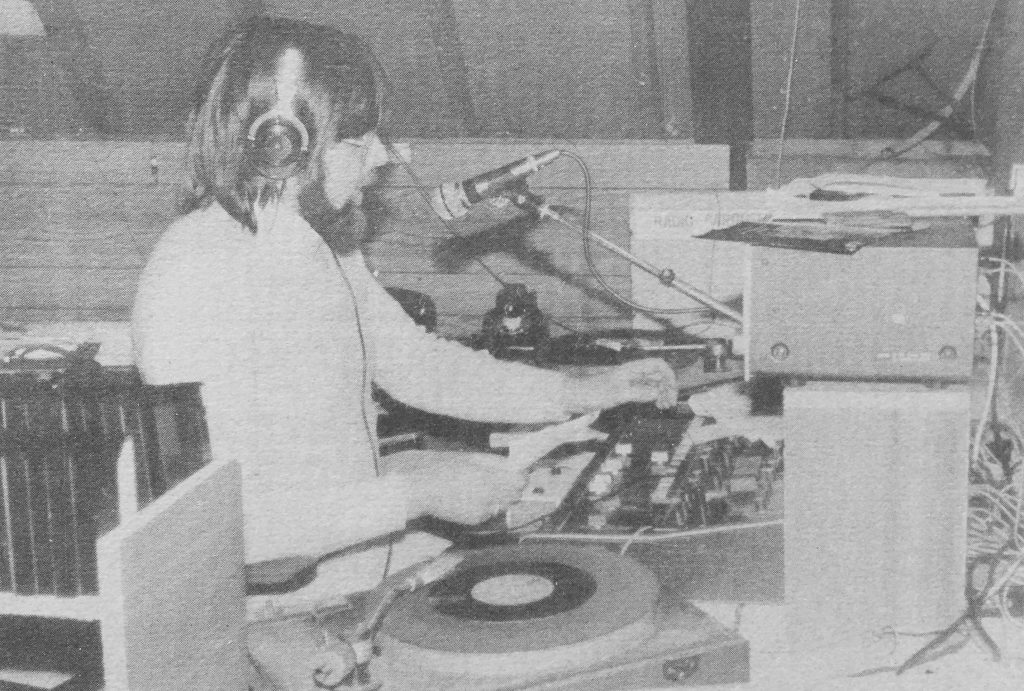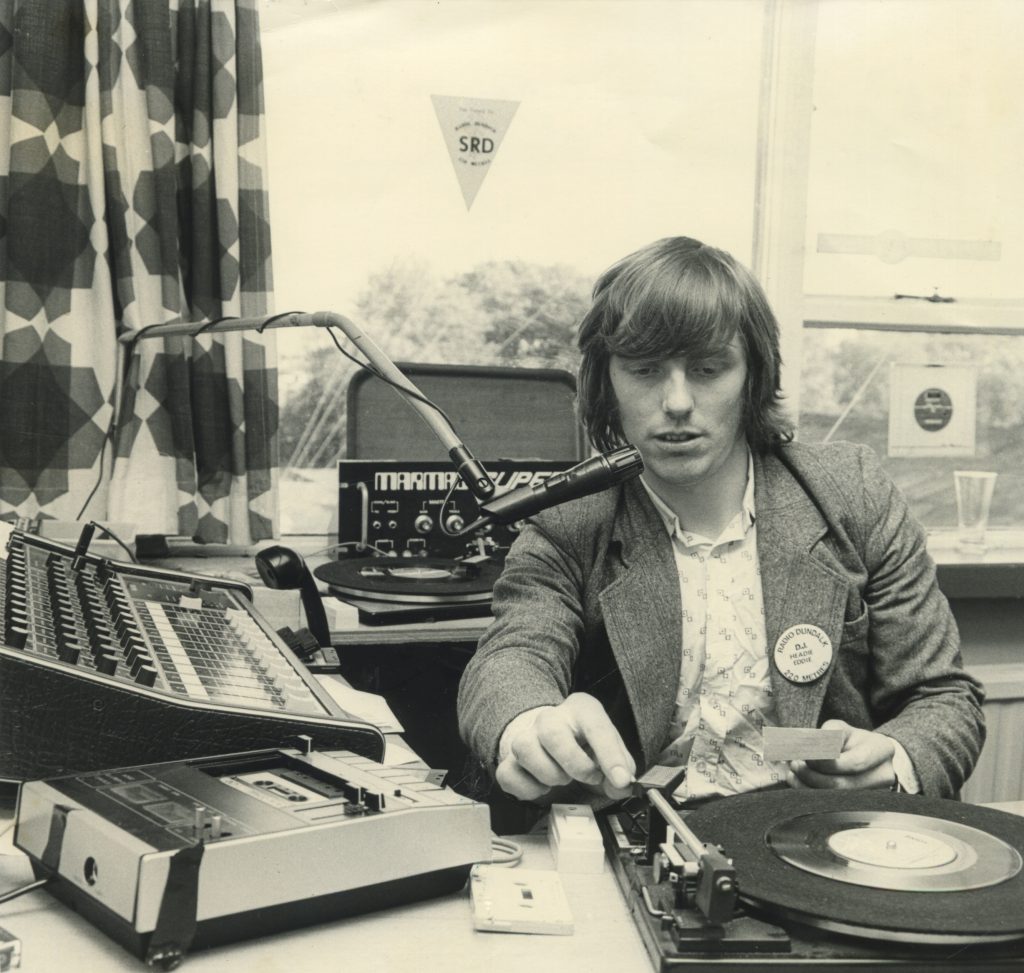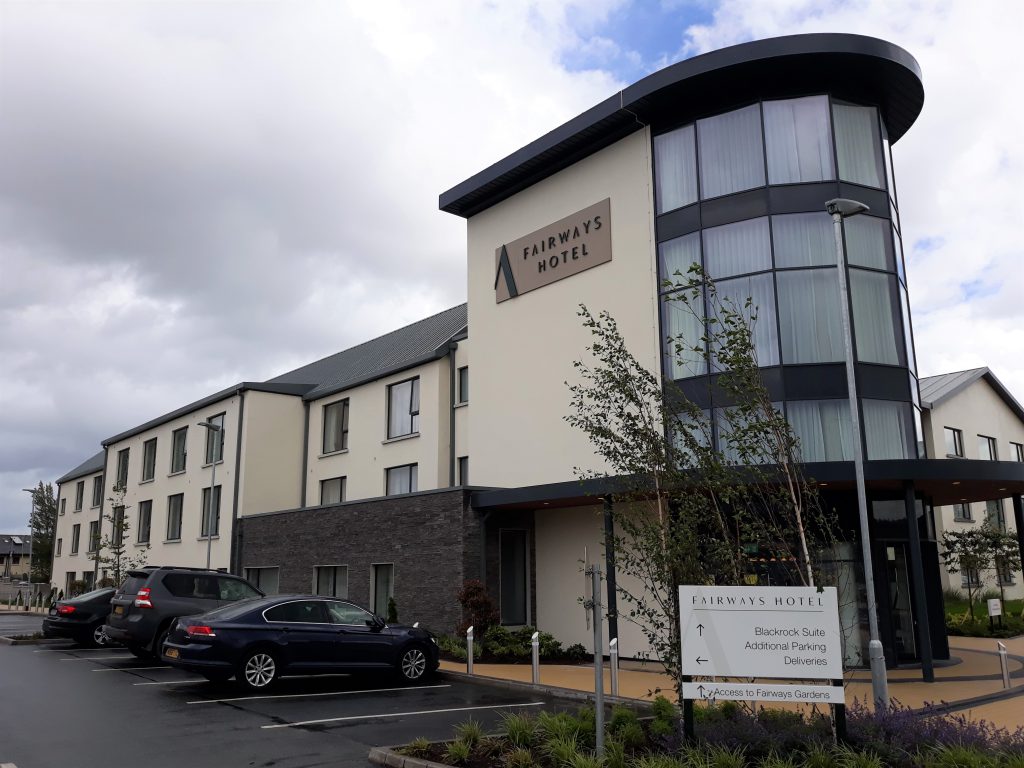Podcast: Play in new window | Download
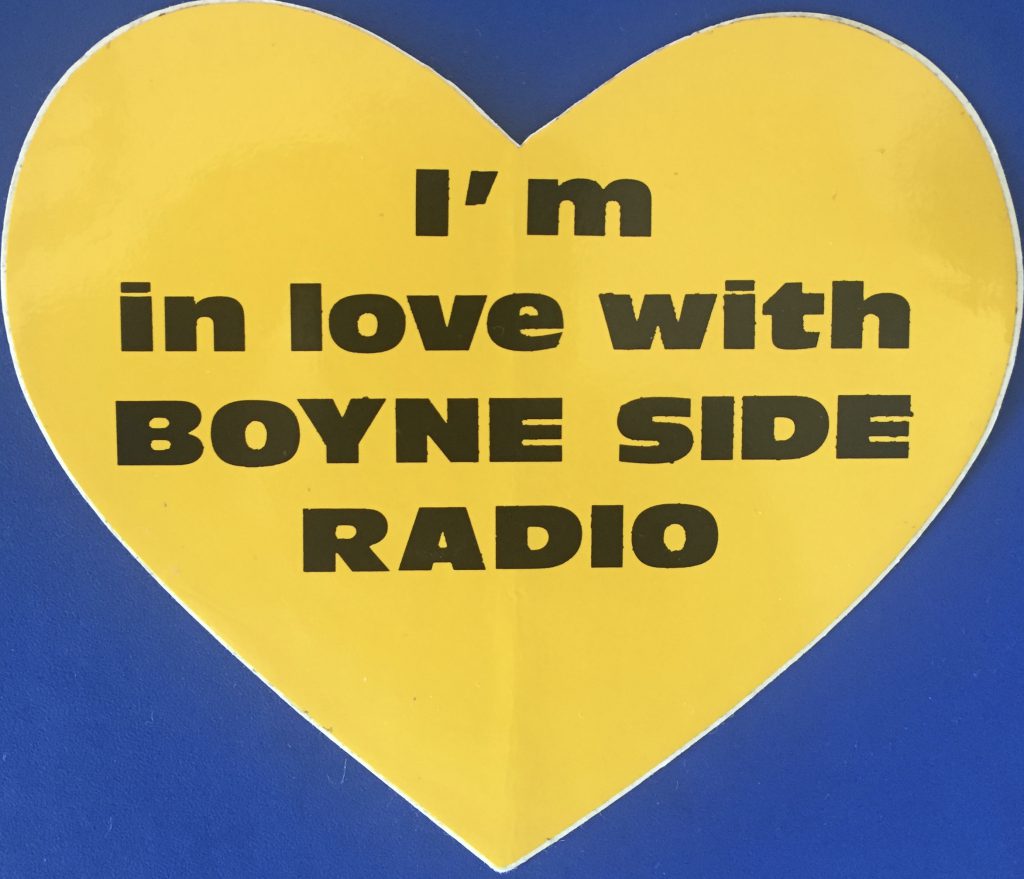
Today we resume our series on the pirates of the northeast from the late 1970s to the end of 1988, beginning with a series of recordings of Boyneside Radio from Drogheda. We thank Ian Biggar for writing a history of the station and both Ian and Eddie Caffrey for donating recordings.
After the success of Radio Carousel in Dundalk from 1978 it was no surprise when a radio station started in the busy town of Drogheda in the south of Co. Louth. Local businessman Eobain McDonnell along with other investors like Frank Buckley made plans to start Local Radio Drogheda (LRD) in the town. The location was on top of the imposing Donaghy’s Mill sitting on the banks of the River Boyne. Studios were set up and a low power transmitter of only 9 watts was installed.
The station came on air in late November 1978 and was an immediate success with the local population. Initial transmissions were logged around 1310 kHz, but the station soon settled on its mainstay frequency of 1305 kHz, always announced as 225 metres.
In January 1979, LRD increased power to 50 watts and a couple of weeks later to 160 watts using an ex-IBA 2Kw rig, although it was not properly loaded into the aerial. However, in May the station suffered some technical problems along with an attempted raid. Despite this and the arrival of RTÉ Radio 2, listeners remained loyal to their local station. Another power increase in July 1979 to 400 watts eliminated some of the technical problems and the station was being heard well within a 45-mile radius of Drogheda.
By now LRD was employing 10 full time DJs covering the daily schedule from 0730-2100, along with two newsreaders and an NUJ news editor. Gavin Duffy and ‘Heady’ Eddie Caffrey joined the station from Radio Dundalk, as well as Eric Vaughan from Radio Carousel and Daire Nelson from NER. Later in 1980 Peter Madison, who was working as a chef in the Boyne Valley Hotel joined, initially presenting a weekly oldies show before going full time on breakfast.

As the station coverage grew beyond Drogheda, the station began to identify as Boyneside Radio, before dropping the LRD call sign all together by late summer 1979. The station was now well established and seen as one of the pioneers of local radio in Ireland. Despite Radio Carousel moving into the town in early 1980, Boyneside Radio was now established as the local station in Drogheda and was not impacted by the new arrival. It is likely that Carousel was viewed as a Dundalk station and therefore not particularly accepted in Drogheda.
In the latter half of 1980 listeners were surprised to hear a loop tape on 1071 kHz identifying as Boyneside Radio 2. This was heard far and wide during the night. Eddie Caffrey has said that this was really just to hold the frequency as he had heard that Carousel might be planning to put a transmitter on there. Boyneside entered 1981 broadcasting 24 hours a day on 1305 kHz with around 1.5kW, as well as an FM frequency for the town on 99.2 MHz and another on 98.1 MHz. The latter was located on high ground to the north of Drogheda and gave good reception as far as south Co. Dublin.
In July 1981 Eobain McDonnell made an offer to Gavin Duffy and Eddie Caffrey that they could run the station for a weekly fee and that he would take no part in the operations of Boyneside. This was agreed and implemented, but very shortly Eobain had a change of heart and wanted to withdraw the offer. This was unacceptable for the team and resulted in a split in the station. Gavin, Eddie, Richard Crowley and others broke away with the intention of starting their own station. They took the high power transmitter, leaving Boyneside Radio only on FM. The studio equipment and records remained at Mill Lane, along with staff like Eric Vaughan, Dara Nelson and Áine Ní Ghuidhir (Ní Chairbre). What happened next was an interesting time for radio in Drogheda.
This recording is of Heady Eddie presenting the Top 30 on Boyneside on a Sunday afternoon from 1503-1600 in August 1979. Many thanks to Ian Biggar for the recording.

